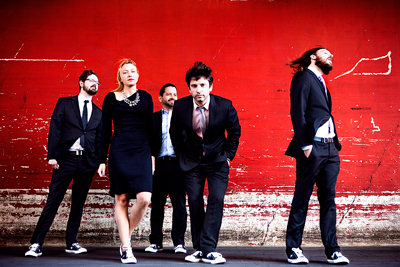 Film: Carnage (Sony Pictures Classics 2011)
Film: Carnage (Sony Pictures Classics 2011)
Director: Roman Polanski
Screenwriters: Yasmina Reza, Roman Polanski
Cast: Jodie Foster, Kate Winslet, Christoph Waltz, John C. Reilly
Genre: Drama, Comedy
?Conflict cannot survive without your participation.?
Wayne Dyer
?It behooves a father to be blameless if he expects his child to be.?
Homer
Young Zachary wants to join Ethan’s gang, but Ethan’s unwilling to let him in. Zachary is enraged. He responds by treating Ethan to a smack in the face with a stick, damaging two teeth.
This means war?but only for the boys? parents, as they try to respond to these acts of hostility. Peace talks are attempted, the cards are laid out, and everyone exhibits the best of intentions. Negotiations roll along nicely until one side doubts the other’s sincerity and refuses to bend.
Each side pays lip service to the same postmodern values, but opinions differ as to how these should be applied. On the surface this is what leads to the eventual catastrophe.
It’s obvious that the more the members of this loopy pantheon cling to their ideologies, the less they understand the truth about their circumstances. It can’t be determined, for example, whether Ethan was the bully or whether it was Zachary, or which boy is a snitch (or the worse snitch). Each parent disputes the location of the moral high ground and bristles when scruples or motives are questioned. It’s excruciatingly important that they be seen as good and wise and compassionate, whether they are or not.
Penelope, Ethan’s mom, is a cultured liberal with an uncompromising sense of social justice; the fact that She’s written about Africa grants her a self-righteousness that gives her an illusory sense of identity within the meaninglessness of her staid upper-middle-class existence. This false identity is what buffers her against perceived offenses.
Her husband, Michael, is an easygoing, insensitive slob who deals with his angst by being both sparklingly agreeable and horribly callous.
Nancy is a glamorous trophy wife who actually turns out to be more authentic than world saviour Penelope.
Nancy’s husband, Alan, is clearly a psychopath willing to stop at nothing on the way to his next million. Acquisitive and pragmatic, he shows no interest in defending his son or his wife from insults and accusations. He displays a deep attachment to his cellphone, which he rudely answers again and again, loudly and lengthily helping a client in the pharmaceutical business defend the sale of a potentially deadly medication. He’s only too happy to air his money-grubby laundry for this couple he’s just met for the first time. The cellphone is a phallic appendage on which Alan is utterly dependent; witness his state of shock and despair when the phone is suddenly snatched and drowned in vase of tulips. At this point he instantly wins the support and sympathy of Michael, who understands well the meaning and significance of this flashy little tool.
Halfway through this drama the couples no longer present a united front; Penelope and Nancy attack their husbands (in one fit of pique the pacifist Penelope actually starts hitting her husband), whose only defense is malicious comebacks. The game no longer involves opposing teams but rather each player vying for dominance.
And so we have the liberal Penelope, the Friedmanesque Alan, Nancy the consumer product, and Michael the everyman?or, to take it one step further, superego, ego, libido, and subconscious, all engaged in intense mutual conflict in response to an external threat.
These roles are borne out in the film. It’s apt that It’s Penelope (superego, superbly portrayed by Jodie Foster) who experiences the greatest emotional pain. Nancy (subconscious) experiences a visceral physical reaction to the conflict; she vomits early on and constantly threatens to do it again. Alan (ego) is utterly self-absorbed and at odds with both Penelope and Nancy, and Michael (subconscious) has absurd phobias that contrast beautifully with his relaxed amoral geniality.
As the tension mounts, so does the sense of futility; the boys themselves are far more capable of resolving their own kerfuffle than are their well-meaning but neurotic parents.
Carnage belongs to that body of literature that portrays events serving as catalysts for wars between nations?like Helen of Troy’s capture in The Odyssey or Medb and Ailill’s pillow talk that sparked the war in the Táin Bó Cúailnge, or even the mention of the absent son in Who’s Afraid of Virginia Woolf? These simple events are nothing in themselves, but held against the tension rumbling beneath the surface of a seemingly pacific existence they can blow it all to shards.
Carnage fulfills four of the Mindful Bard’s criteria for films well worth seeing: 1) it is authentic, original, and delightful; 2) it poses and admirably responds to questions that have a direct bearing on my view of existence; 3) it stimulates my mind; and 4) it makes me appreciate that life is a complex and rare phenomenon, making living a unique opportunity.


